A beginners guide to the 9 different wine styles

During our morning meeting the other, I mentioned to The Boss that I planned to do a series of emails (and blog posts) about the fundamentals of wine, as a base for other, more specific topics and that this week's was going to be a guide to the nine different styles of wine. This elicited a raised eyebrow and a (facetious, I'm sure) response of "But surely, there's only two? Red and white!" (He refuses to accept that Rosé is anything other than a figment of my imagination and steadfastly only drinks Claret, occasionally preceded by Sauvignon Blanc!)
I assured him that there are indeed (at least) nine and I'd like to touch on each one briefly today, before going into more depth over the next few weeks.
When buying wine, most of us, as so often in life, tend to stick with what we know. Whilst this isn't necessarily a bad thing, you could be missing out on things you don't even know you like. It's important to to have a little bit of knowledge, so that you at least have an idea of what's going on. Imagine watching a game of rugby (or, God forbid, American football) with absolutely no idea of the rules or scoring. Baffling. A decent sized wine aisle in the supermarket can be much the same.
So, what are these nine wine styles?
1. Sparkling Wine
2. Light White Wine
3. Full-Bodied White Wine
4. Sweet White Wine
5. Rosé
6. Light Red Wine
7. Medium Red Wine
8. Full-Bodied Red Wine
9. Dessert Wine
Sparkling Wine
Background: If you already love sparkling wine, give yourself a pat on the back for your exquisite taste, you are not alone. Sparkling wines are the most technically challenging and time intensive wines made in the world. Annual consumption in the UK has risen from 121.5 million bottles in 2008 to 175.5 million bottles in 2018. Much of this (110 million bottles) is down to the spectacular emergance of Prosecco as the bubbly of choice.
What to try: Champagne is often too price restrictive, so instead keep your eyes peeled for Brut-level sparklers (i.e. not sweet) like Cava, Prosecco, Crémant or perhaps even an English sparkling wine such as Bolney Cuvee Rose 2017 or Ridgeview Marksman 2015, both in the BBC Good Food Top 12 English Sparkling Wine list. According to Nielsen figures for the UK off-trade in 2018, sparkling wine had an average price of £7.22 per 75cl bottle, while Champagne had one of £23.25.
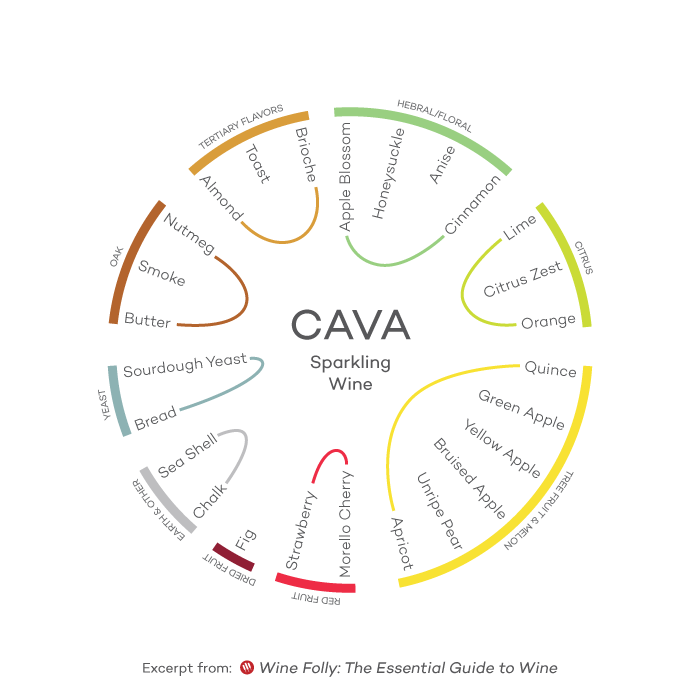
Light-Bodied White Wine
Background: These light, easy-drinking, dry white wines are some of the best selling wines in the world (even if red wines get more attention). Light whites are like the "beer of wine" and because of it, they are great to drink with most foods. Some of these wines are ideal for savoury lovers (Sauvignon Blanc and Grüner Veltliner included) with green herbal flavours of gooseberry and bell pepper.
What to try: Wines that fit into this category include Pinot Gris (aka Pinot Grigio) and Sauvignon Blanc, but they also include many lesser known ones like Grüner Veltliner, Albariño, and Soave ("swah-vay"). I would highly recommend looking for a wine from a cool climate region (imagine the places with a rainy month of June, such as New Zealand, Rheingau, Tazmania(!) and even good old Blighty) because they produce some the best examples of this light, zesty style.
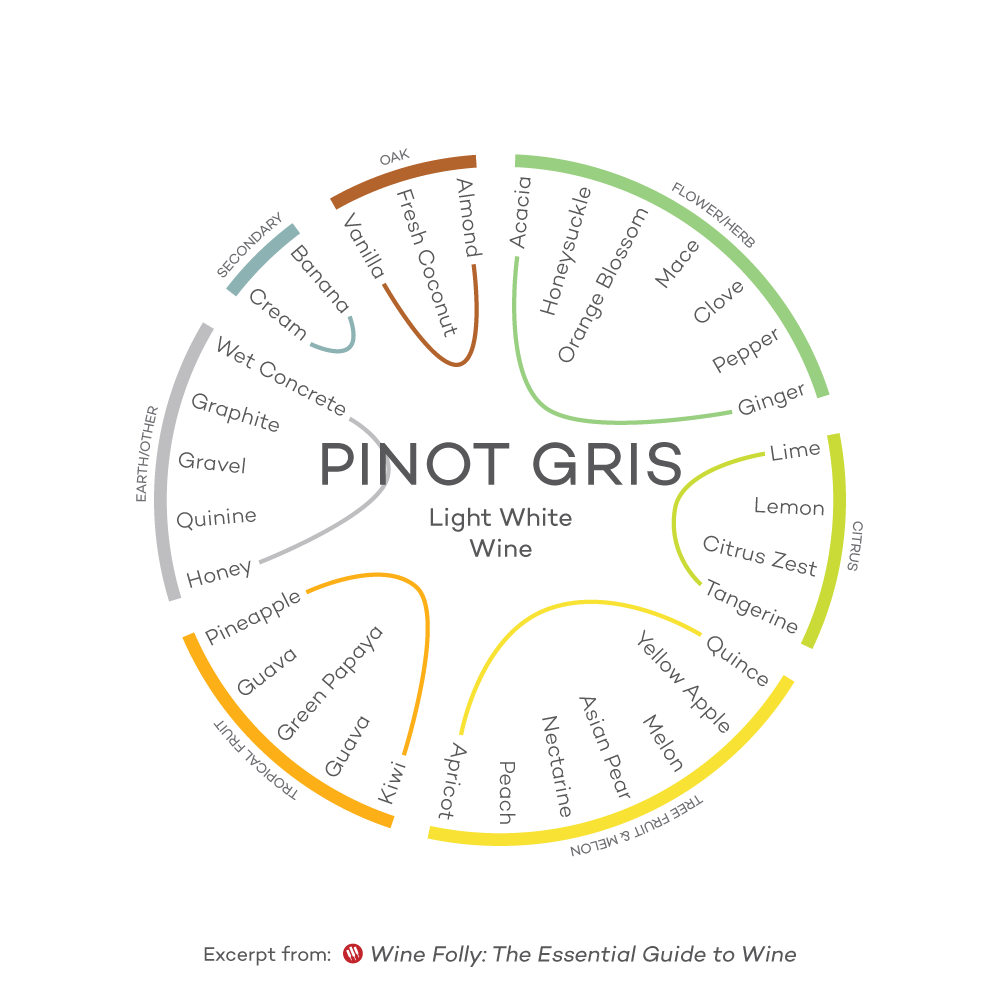
Full-Bodied White Wine
Background: Full-bodied white wines are ideal for red wine lovers because of their rich, smooth taste with subtle creaminess. What makes them different than light white wines usually involves special winemaking techniques including the use of oak-aging (just like aged whiskeys, wine becomes smoother with barrel aging too).
What to try: The classic choice for this wine is Chardonnay and particularly Chardonnay from a warmer climate (like California, Spain, or Italy). Besides Chardonnay, another great option in this style is Viognier.
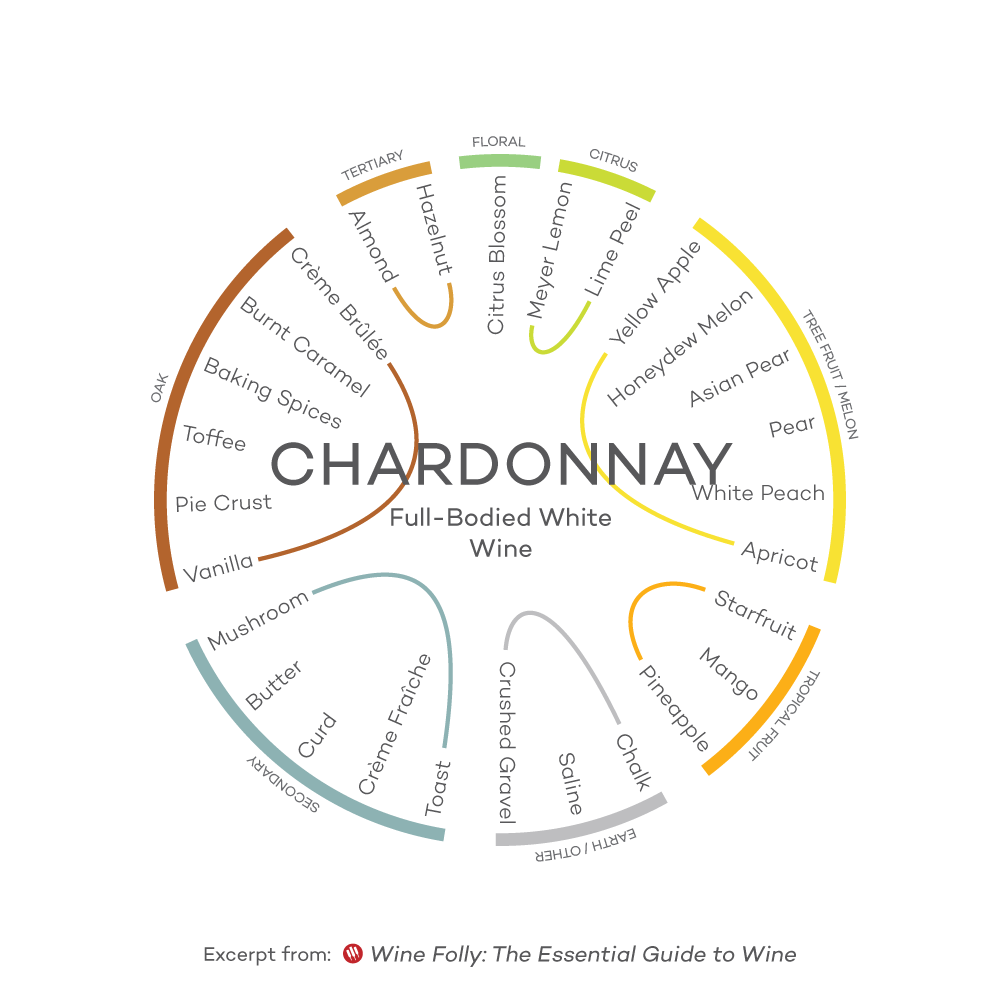
Sweet White Wine
Background: Sweet grapes are some of the oldest wine varieties in the world. In fact, Cleopatra is noted for her love of Muscat of Alexandria from Greece, a lovely rich aromatic white wine. These wines have explosive, almost perfumed, aromas that spring out of the glass into your nose. They can be either dry or sweet, but most will taste a touch sweet due to all those aromas.
What to try: There are many great sweet wines to try, and most are wonderfully affordable. A few examples of these include Moscato d'Asti, Gewürztraminer, Torrontés (great if you like a more dry style), and Riesling.
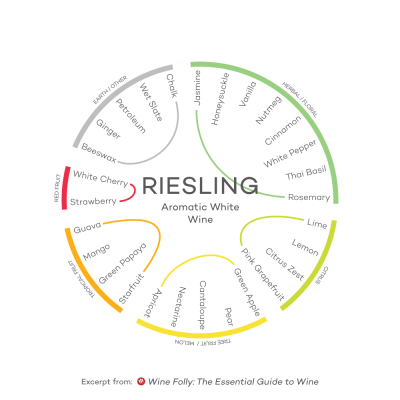
Rosé
Background: Rosé is a true winemaker's wine because it's made by "dyeing" the wine, for only a short time, with the skins of red wine grapes. It is not known when the first wine labeled as a rosé was produced, but it is very likely that many of the earliest red wines made were closer in appearance to today's rosés than they would be to modern red wines. This is because many of the winemaking techniques used to make today's darker, more tannic red wines (such as extended maceration and harder pressing) were not widely practiced in ancient winemaking. Both red and white wine grapes were often pressed soon after harvest, with very little maceration time, creating juice that was only lightly pigmented. Today, you can find rosé wines of all styles (sweet or dry) made from many different grapes from Cabernet Sauvignon to Zinfandel (known commonly as White Zinfandel).
What to try: Instead of the sweet version, try a more dry style rosé to taste its subtle elegant flavours. Some of the most classic versions of dry rosé come from Southern France in Provence and the Pays d'Oc region. The varieties used to make these wines include Grenache, Syrah, Carignan, and Mourvèdre, which are all red wine varieties! Since rosé is made everywhere, perhaps stick to one made with one or several of the aforementioned varieties to experience a classic rosé.
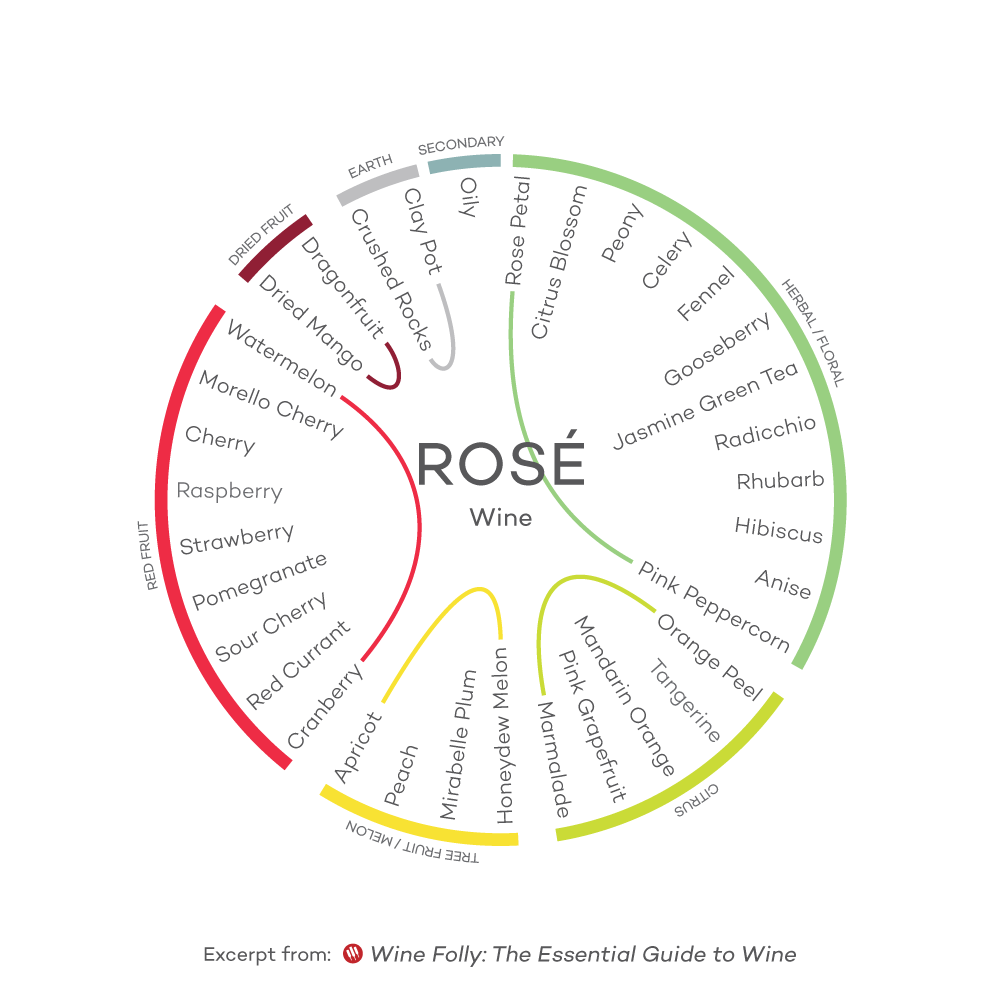
Light-Bodied Red Wine
Background: Light red wines are pale in colour (you can see through them in a glass) and have very little tannin. Tannin tastes astringent in wine and dries your mouth out in the same way that putting a wet tea bag on your tongue would. Light red wines generally have a lower alcohol content, usually less than 12.5 percent and they pair well with a wide variety of foods. It makes this style of wine a great choice for those just getting into red wine.
What to try: The classic light red wine that most people know is Pinot Noir, but besides that, Gamay Noir is another great wine to try in this category. Gamay is most known by the name of a region where it grows, Beaujolais.
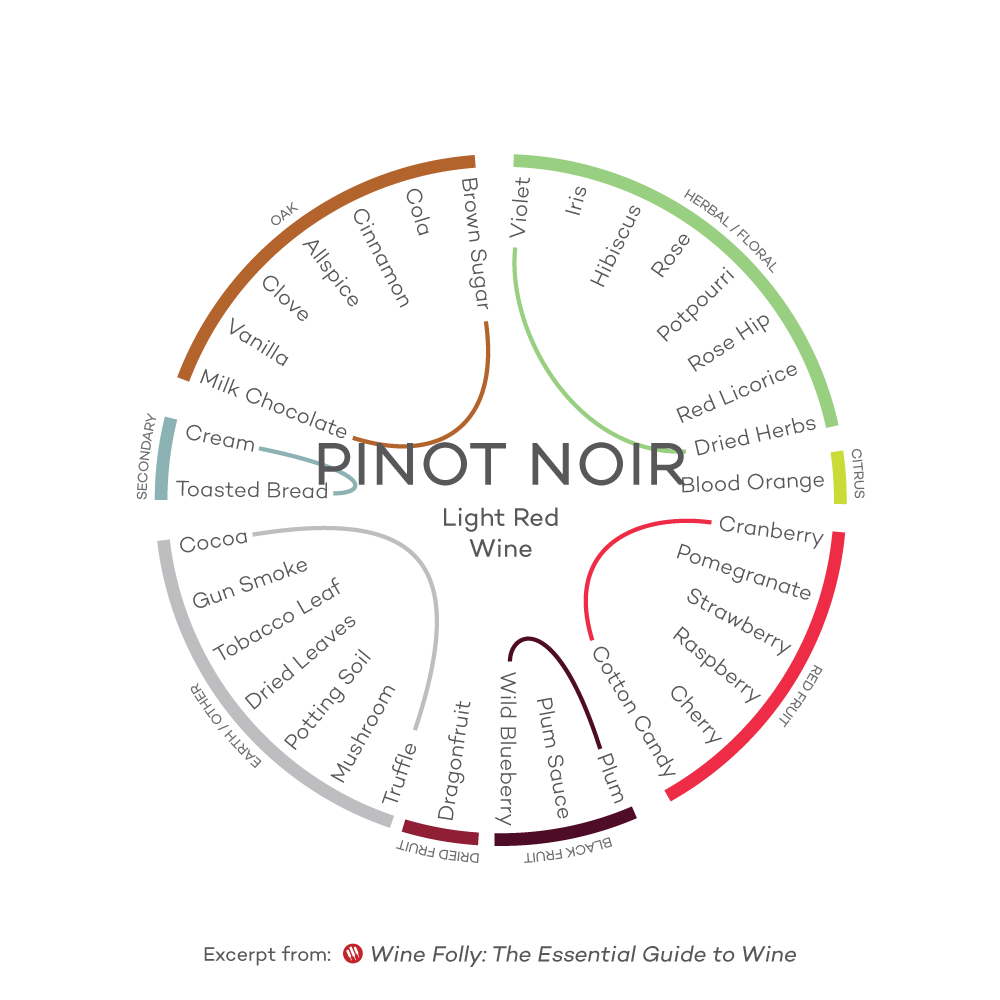
Medium-Bodied Red Wine
Background: Medium red wines are what I like to call "food wines." They offer up tons of flavour with a balance of zesty acidity which makes them match with a wide variety of foods (from crisp salads to rich and cheesy lasagna). These are the perfect mid-week wines for red wine lovers.
What to try: There are many varieties that span the mid-weight red wine category, so, to name a few familiar ones, check out Grenache, Sangiovese, Merlot, Zinfandel, Montepulciano, Cabernet Franc, and Barbera
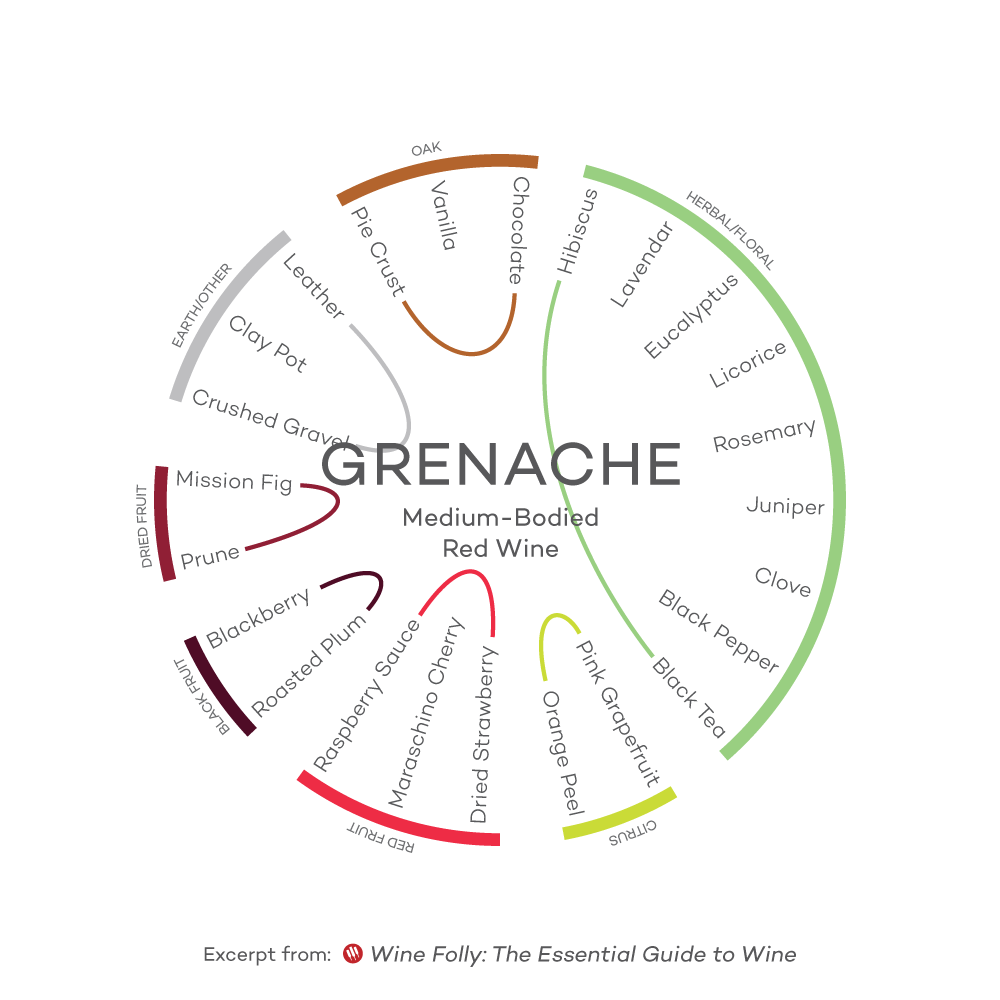
Full-Bodied Red Wine
Background: Full-bodied red wines are the deepest, darkest and most tannic of all the red wines. Tannin might sound weird and bitter, but you see, the tannin in wine binds to proteins in our saliva and has a palate cleansing effect. This is why a bold red wine goes so wonderfully with a juicy, fatty steak like ribeye. Any red wine with more than 13.5 percent alcohol is considered a full-bodied wine, they have more complex flavours and have a richer mouthfeel, making them most popular to drink on their own.
What to try: You've no doubt experienced one of these wines if you're a wine lover; they include Syrah/Shiraz, Cabernet Sauvignon, Malbec, and even Pinotage. These are perfect examples of how bold a wine can be.
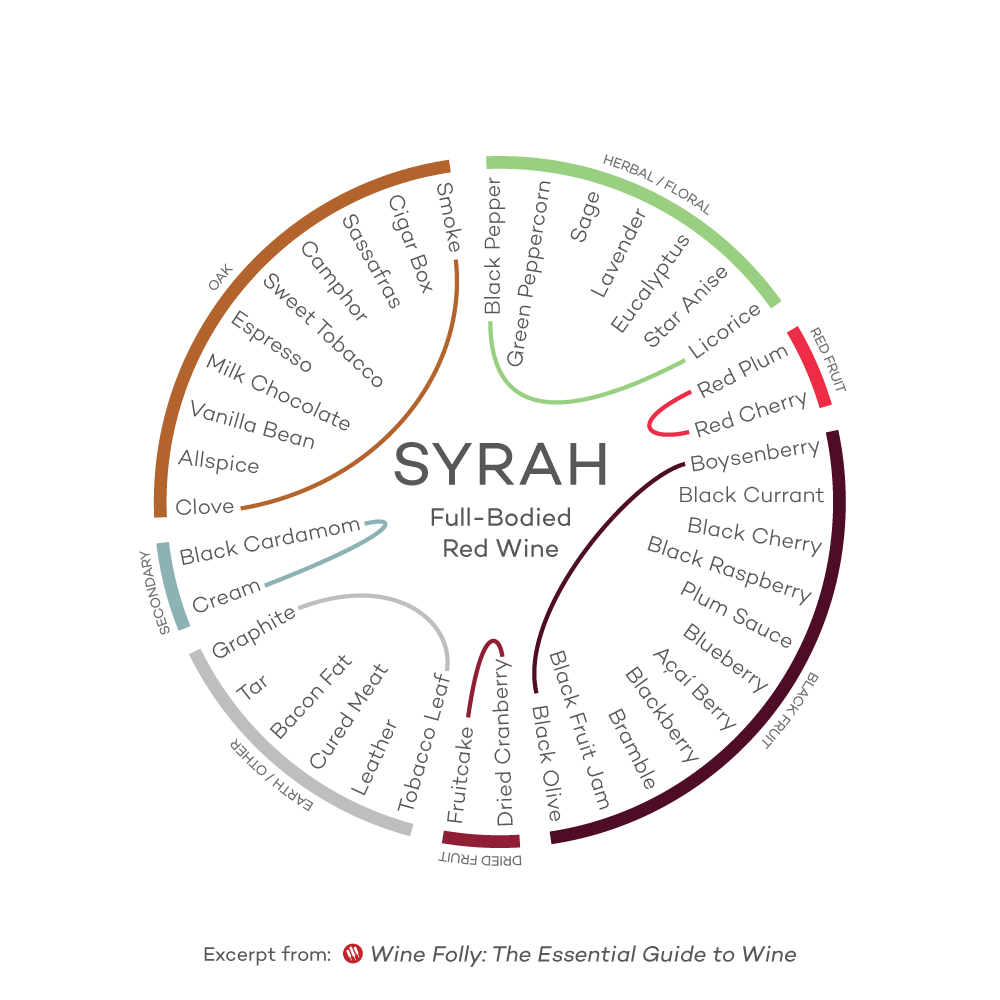
Dessert Wine
Background: In the mid to late 1800's, sweet wines were more popular than dry wines. In fact, several of the most exalted wines in the world, from Sauternes in Bordeaux to Essencia from Hungary, are practically as thick as syrup. There is no simple definition of a dessert wine. In the UK, a dessert wine is considered to be any sweet wine drunk with a meal, as opposed to the white fortified wines (fino and amontillado sherry) drunk before the meal and the red fortified wines (port and madeira) drunk after it. Thus, most fortified wines are regarded as distinct from dessert wines, but some of the less-strong fortified white wines, such as Pedro Ximénez sherry and Muscat de Beaumes-de-Venise, are regarded as honorary dessert wines (got all that?). In the United States, by contrast, a dessert wine is legally defined as any wine over 14% alcohol by volume, which includes all fortified wines—and is taxed more highly as a result.
What to try: There are many different types of dessert wines to explore; however, if you can start with a Port or a Sauternais-styled wine (a late harvest white wine), you'll have a great preview of what dessert wines can give.
So, there you have it. It's time to get tasting!
I highly recommend finding wines through a local specialty wine shop. They tend to be more curated and will often take the time to help you find wines you'll like. Don't be afraid to ask questions and take notes. I have a great app on my phone called Vivino, you take a photo of the label and it identifies the wine and gives you tasting notes and background. More importantly (for me!) is that it remembers all the different wines you have drunk.
